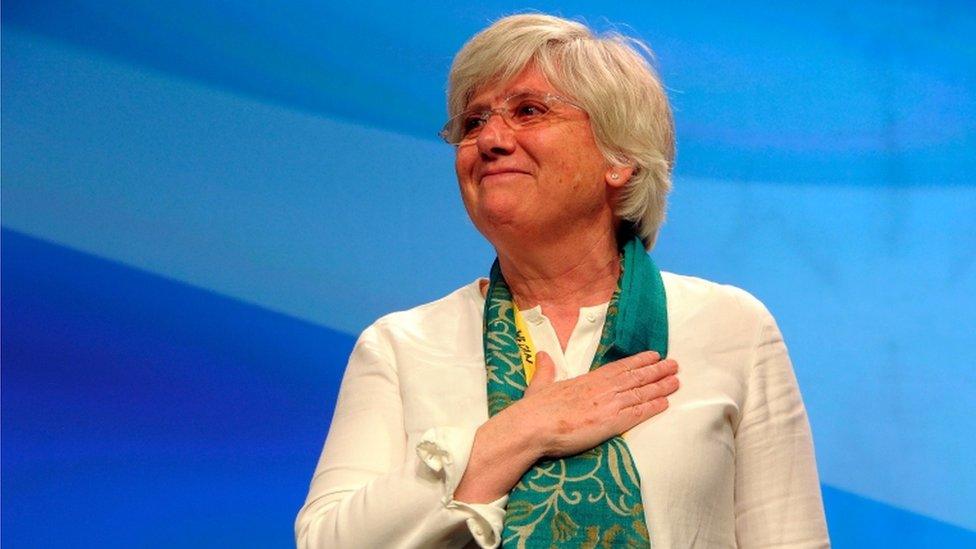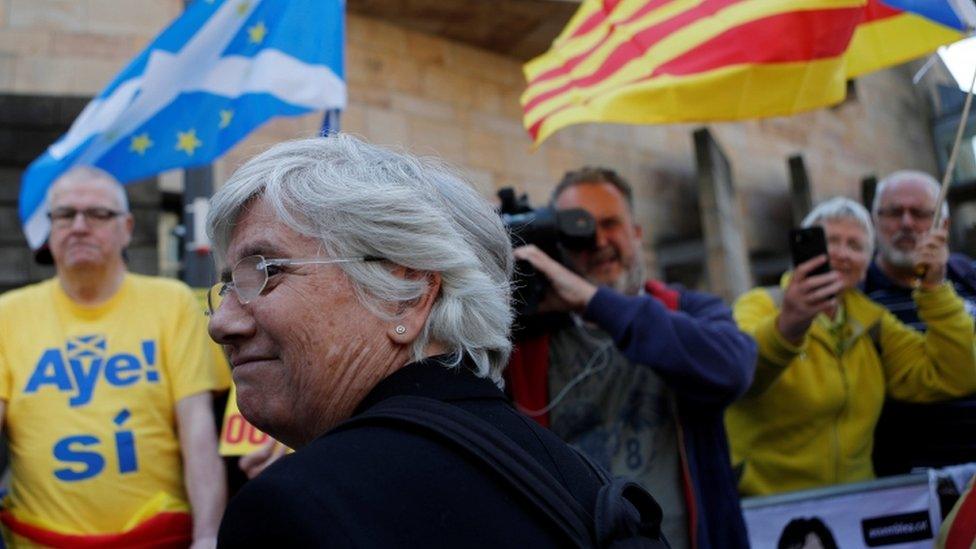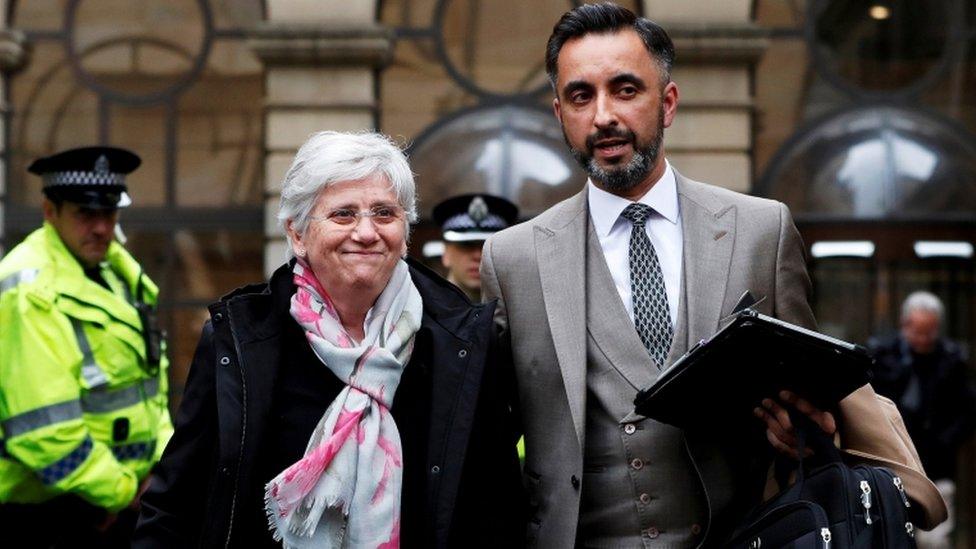Ponsati case may call Spanish politicians
- Published
Aamer Anwar says Ms Ponsati's legal team could call former Spanish government ministers to court in her battle against extradition
Lawyers for Clara Ponsati are looking at whether to call former Spanish government ministers to court as part of her battle against extradition.
The former Catalan education minister is wanted in Spain over her role in last year's disputed independence referendum.
Her legal team says it may call ex-members of Mariano Rajoy's recently-ousted government as witnesses.
A full extradition hearing is expected to start in Scotland later this year.
Prof Ponsati was arrested in Edinburgh in March after authorities in Madrid accused her of rebellion - defined under Spanish law as being involved in a violent uprising - and misappropriation of public funds.
Standing ovation
The academic has been working at the University of St Andrews and was given a standing ovation when she spoke at the SNP conference in Aberdeen on Saturday.
She says the charges against her are politically-motivated, and that she would not receive a fair trial if the extradition request is granted.

Prof Ponsati spoke at the SNP conference in Aberdeen on Saturday
Her lawyer Aamer Anwar says she could face a total sentence of up to 33 years if she is returned to Spain and convicted of the charges.
A procedural hearing in the case was held at Edinburgh Sheriff Court on Tuesday, which Prof Ponsati did not attend.
Speaking afterwards, Mr Anwar said: "We're instructed to consider citing to our court ex-ministers from Rajoy's regime to expand on their controversial comments that fall within the ambit of victimisation and political persecution.
"Our position remains that we cannot see what crime known to the law of Scotland has allegedly been committed by Prof Ponsati."

A large group of supporters has attended previous court hearings in the case
Socialist leader Pedro Sanchez was recently sworn in as Spain's prime minister after he successfully ousted predecessor Mr Rajoy in a no-confidence vote.
John Scott QC, for the Crown, earlier told the court a little more time was needed to consider the issue of what crime or crimes would be covered in Scotland.
He added that witnesses were still being identified "on both sides of the table".
A further procedural hearing will take place on 5 July.
- Published11 April 2018
